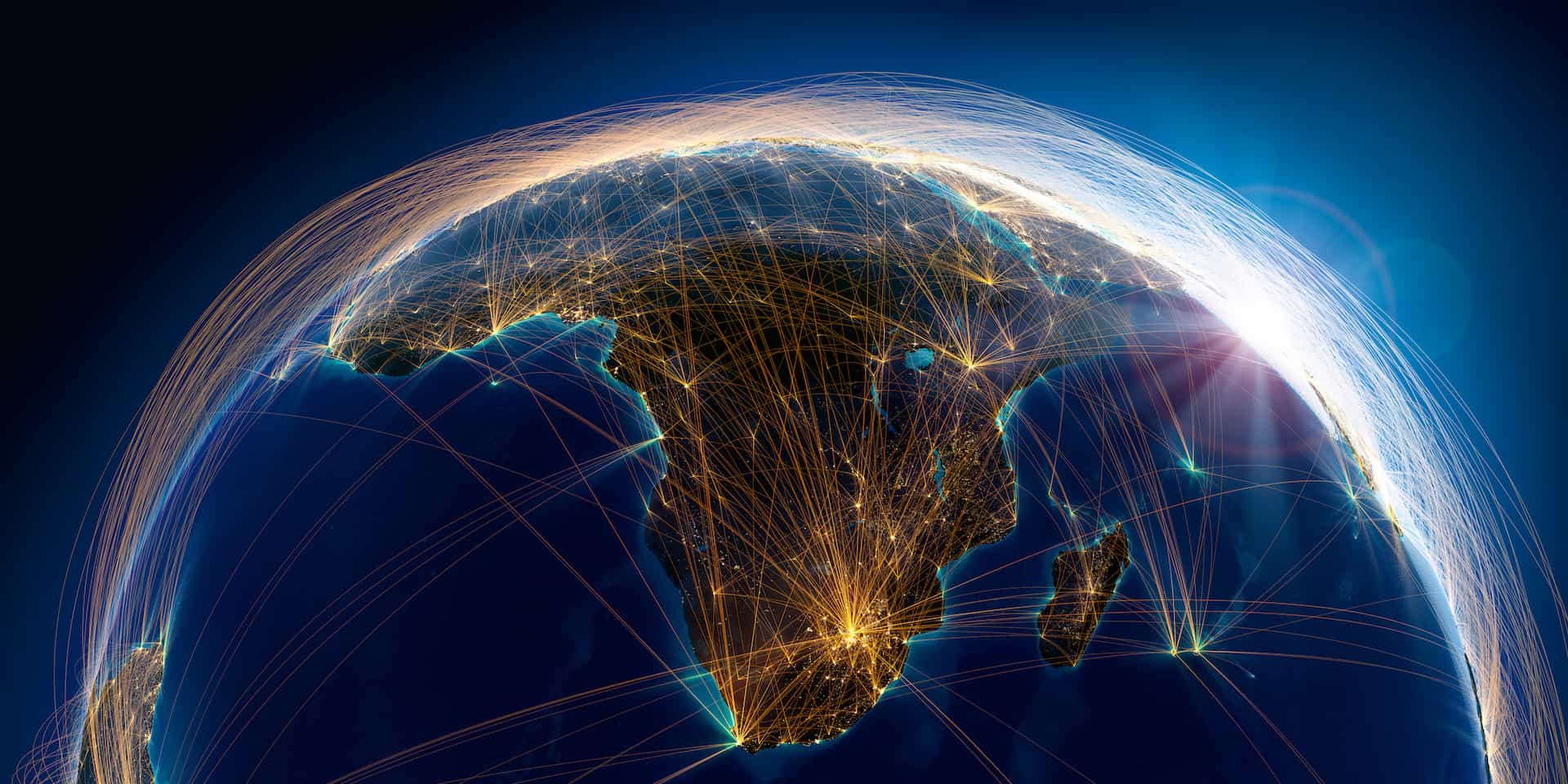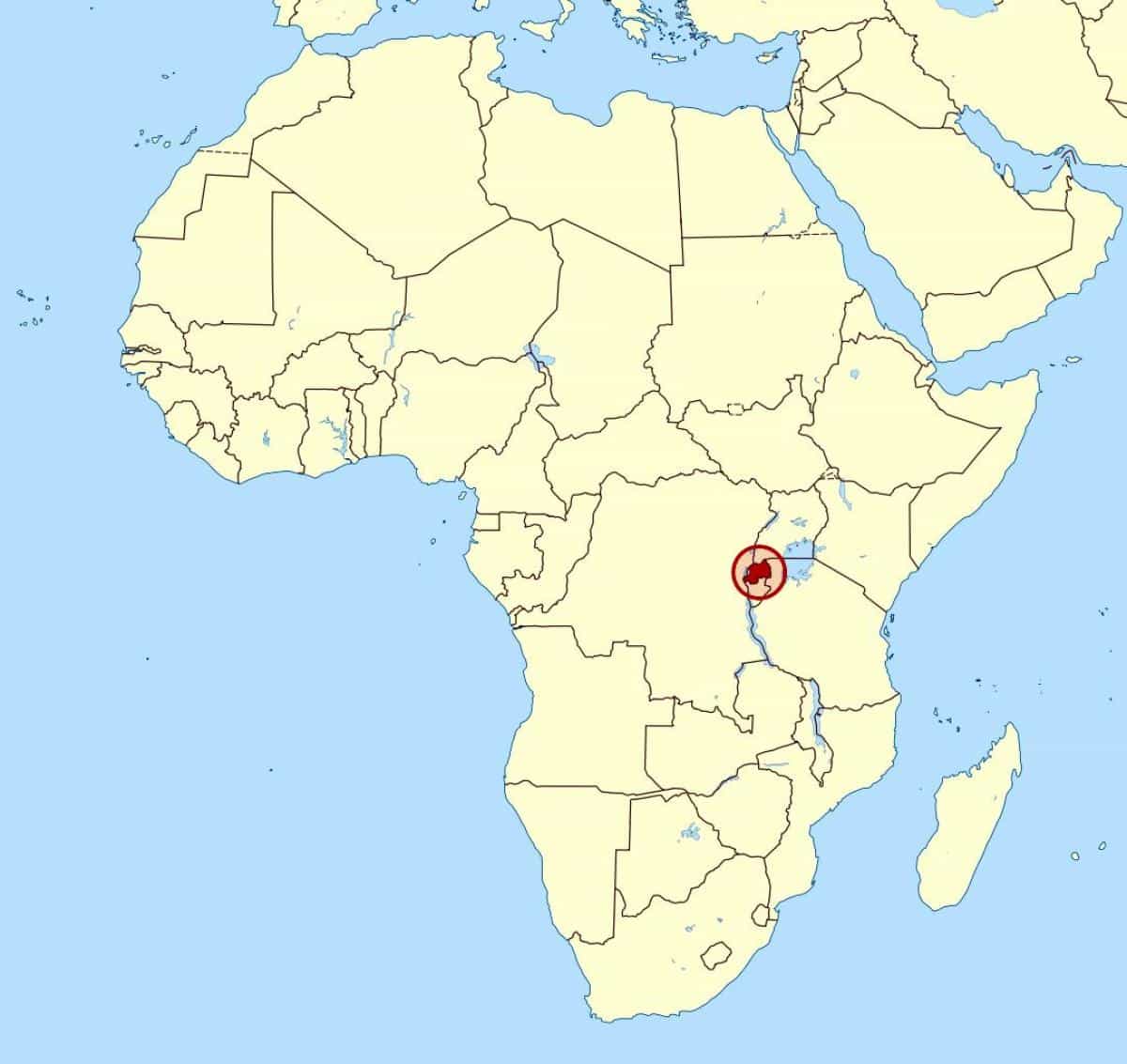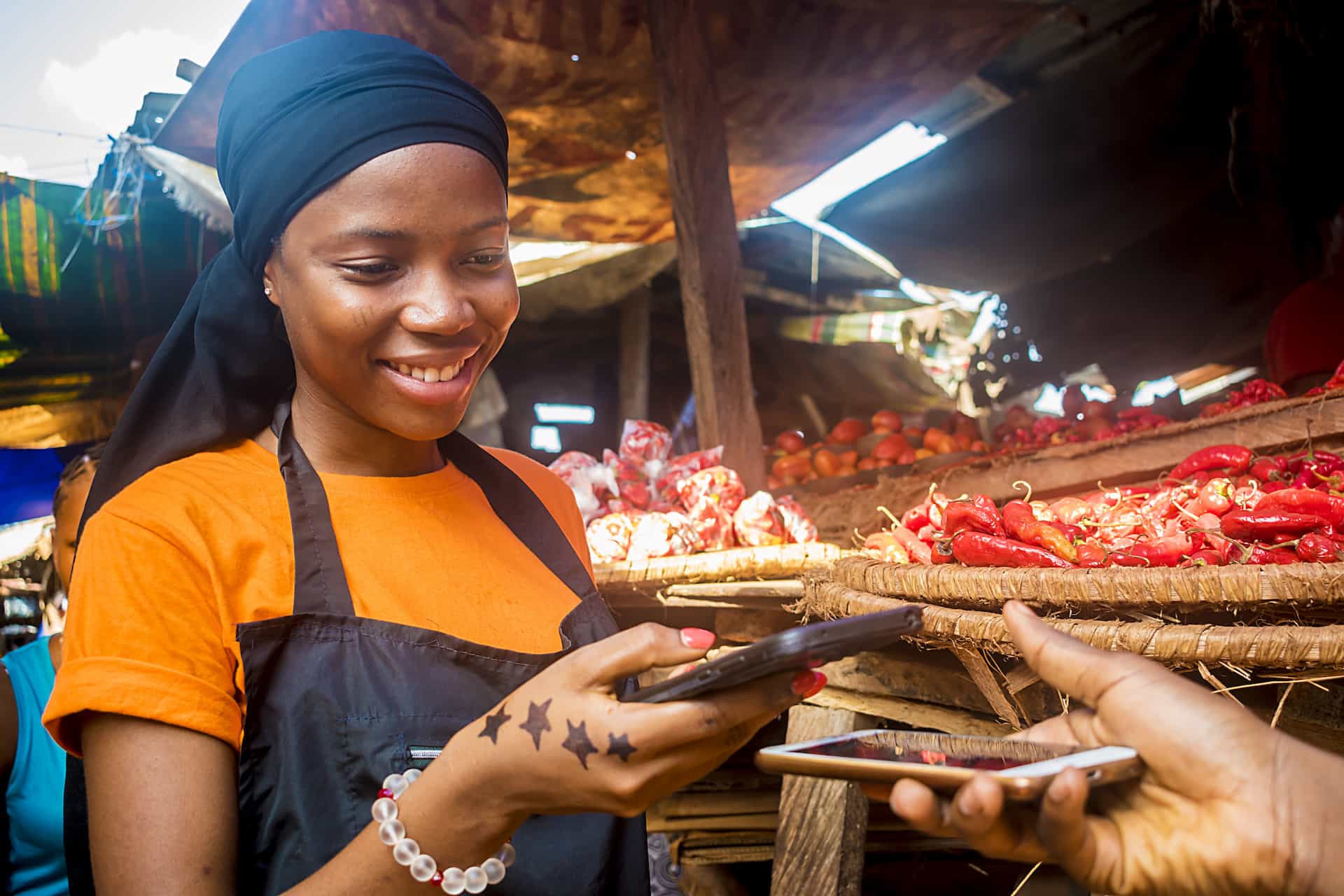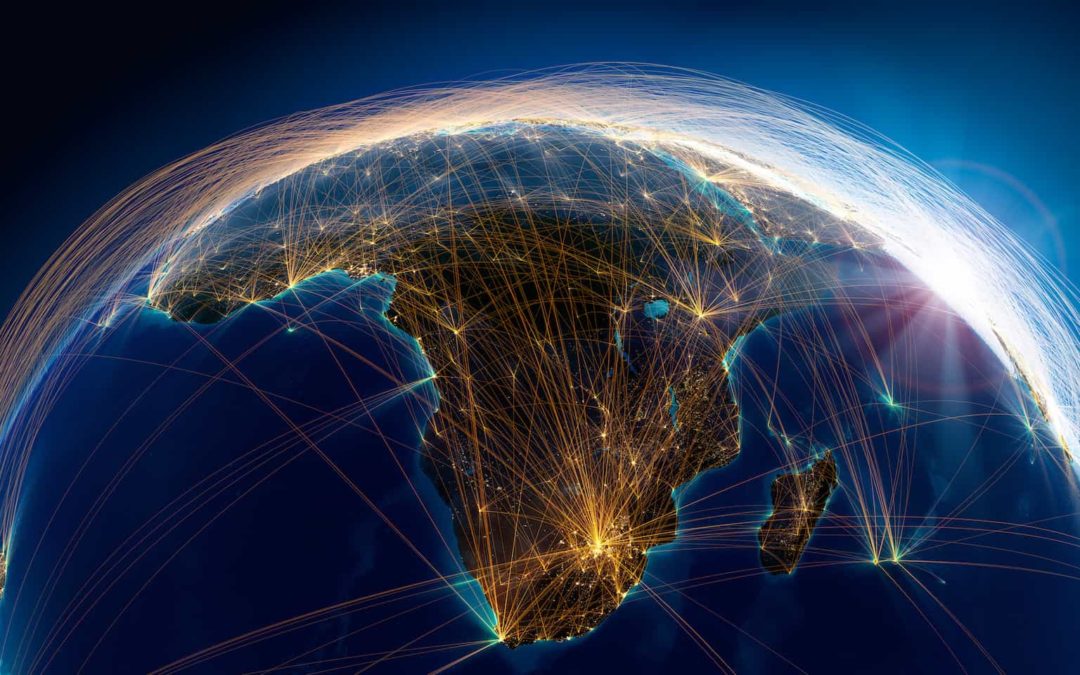
In the middle of the on-going pandemic it’s quite obvious how crucial it is to be connected to the rest of the world. Digital technology has become more important than ever to facilitate and enable work, business and life. And that’s a global phenomena. But, as the eyes of the world gaze ever so steadily upon the everyday activities of Silicon Valley, or the curious projects of Elon Musk, far less is known and understood about how digital connectivity is evolving in Africa.
But to make it very clear, yes…Africa is fighting severe problems. Most countries on the continent are struggling with covid, drought, desertification, hunger, national debts, corruption, violence, conflicts and shaky institutions. The biggest economies on the African continent – South Africa and Nigeria – suffer from great constraints and show low growth and high unemployment rates, which of course affects other African countries that are very much depending on them. But that should not overshadow the digitalization that is happening and reshaping Africa.

A digital revolution
The future of Africa is of course not only dependent on connectivity. There are a vast number of innovative and constructive initiatives going on. A progressive work with gender equality has resulted in for instance Rwanda having the largest share of women in parliament – in the world. Legislation on land rights is a game changer in poor countries like Liberia. Stronger rights to land have the power to reduce poverty, conflicts and corruption. It increases economic activity, and empowers women. The list can be made long. Work is also put on reversing impacts of climate change, like The green wall, a project in south of Sahara.
And, a digital revolution is definitely going on. Many African countries can make leapfrogs – saving time and money – compared with many countries in the western world. They are not stuck in far-reaching investments, infrastructures and technical equipment. They can, in the best of worlds, move straight on to mobile devices and mobile applications. Rwanda is one example. The country is landlocked, hilly, rural and poor… a country where the government uses blockchain technologies to secure transactions and digital signatures.

Some countries, e.g, Nigeria and Kenya, in sub-Saharan Africa are global leaders in mobile money transactions, sometimes equal to almost 25 % of GDP compared to only 5 percent in the rest of the world.
And, concerning the development of artificial intelligence (AI), global players like Google and IBM are investing heavily in research and development sites all over Africa within areas like health, education, agriculture, and activities to understand natural language. Despite the serious circumstances with the pandemic, the international community and governments on the African continent definitely take important steps and actions to build a digital infrastructure to meet up the new logics and demands of a digitized and medialized world.

Drivers for the future
According to International Monetary Fund (IMF) digital technologies and connectivity is now driving change across sub-Saharan Africa. There are examples of kids learning to code outside Niger’s capital, and drones delivering medicines to remote communities in Sierra Leone.
Digitalization will push important democratic corner stones as education, health and financial infrastructure. Figures from the UN states that women are much less connected then men. Maybe half as much. But, if a woman gets connected to internet, her private economy can increase by as much as 50%. A gender challenge of rank.
According to the UN, digitalization is one of the most powerful tools for implementing the 2030 Agenda for Sustainable Development, and Africa’s Agenda 2063. Digital applications are already driving socio-economic transformation, increasing efficient production and distribution of goods and services, opening up new opportunities for income generation for millions of poor people, enhancing connectivity between people, societies, government, and organizations. The list is long.
According to the “E-Conomy Africa 2020” (by Google and the International Finance Corporation) there are some major trends right now that can accelerate the growth of the African internet economy:
- An increased access to more affordable and high-speed internet across the continent.Ethiopia is the only example on the continent with a – up until now – monopolistic situation on the telecom market. But, as we speak, a broadband auction is going on, opening up for international ISP:s to act in the country. Some expect that connectivity will rise from the very modest level of 5-10 % till maybe 50-60 % just within a couple of years. Major changes and opportunities in other words.
- The manner in which African startups are transforming the African economic landscape creating new market opportunities.In Rwanda and Kenya ICT (information and communication technology) start-ups are blooming and international venture capitalists are queuing up. According to United Nations Conference on Trade and Development (UNCTAD)) Rwanda is the number one ICT country in East Africa.
- The formation of the African Continental Free Trade Area (AfCFTA), being the single biggest free trade zone on the planet, containing almost every African country.
The AfCFTA aims to reduce tariffs on 90% of all goods, and to facilitate free movement of goods, services, capital, and people. The UN Economic Commission has (before covid) estimated the agreement to boost intra-African trade by 52% by 2022. The agreement is expected to not just push economy, but to tackle structural problems like poverty and inequality on the continent.According to the United Nations, Africa has the highest concentration of young people in the world and the share is expected to grow heavily in the coming years. With urbanization, and the increased share of young and educated – consumption of online services will rise.
What happens post covid-19 is vital for recovery. According to the IMF, expanding internet access in sub-Saharan Africa by an extra 10 % of the population can increase real per capita GDP growth by 1 to 4 percentage points. And for firms using email, annual sales can get 2.6 times higher. On average, digitally connected firms employ eight times more workers and create higher-skilled, full-time jobs. Internet has turned from viewed as something that’s good to have to a “must have”.

Local initiatives
And, in the scarcely populated and remote areas – where the big money doesn’t find its way – other exciting initiatives are being formed to connect the unconnected. All over the African continent community networks are being set up to complement the access to internet. These are often non-profitable and offers thereby affordable connections for poor people. All based on a long tradition to come together and pull resources. Usually based on WIFI and hot spots. Using the spectrum that the commercial players have left behind. Often solving the lack of energy by using solar cells. A most sustainable solution.
Future is closer than we think
Africa has its challenges. Undoubtedly. But at the same time, there is also great potential for the future. Today, more than 1 billion people live in sub-Saharan Africa. By 2050, it is estimated that half of the population will be under 25 years of age. This in turn will increase demand and consumption, especially in the metropolitan regions.
According to the World Bank, the African countries have managed to keep Covid-19 under control. Despite a downturn in the economy, some recovery is now expected in 2021. Eastern and southern Africa have an average expected growth of about 2.7%, while The heaviest economies on the continent – Nigeria and South Africa – are expected to show a much lower growth rate. In times of lockdowns and social distancing, it will be interesting to see which countries succeed in tackling, and continuing the digitalization that in many ways has accelerated.
And, the future might be closer than we think. Going back to where we started with Elon Musk – his Starlink project aims to bring high-speed internet access to rural areas in Africa. A solution that, through a grid of satellites and clever algorithms, will find the most efficient way for internet connectivity. Something that can be a reality – in Africa – already in 2022.
Read more:







